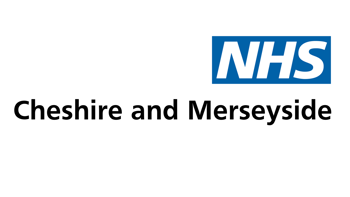NHS Cheshire and Merseyside update on system pressures
Tuesday, 24 January 2023

With NHS services reporting ongoing pressure, NHS Cheshire and Merseyside continues to urge members of public to ensure their vaccinations – such as flu and COVID-19 – are up-to-date and to continue to follow simple self-care advice.
If you need to access a healthcare service, but it’s not an emergency, please first use NHS 111 Online to ensure you are signposted to the correct service.
NHS 111 Online can tell you:
- Where to get help for your symptoms
- How to find general health information and advice
- Where to get an emergency supply of your prescribed medicine
- How to get a repeat prescription
Across Cheshire and Merseyside, NHS services continue to experience high demand – including high numbers of people attending emergency departments (A&E) and GP practices.
Intensive and focused work with health and care partners, including those in local Government, to improve our position has helped in recent weeks, leading to a sustained period of more than 10 days in which none of Cheshire and Merseyside’s hospitals have been at the highest level of escalation. There does, however, remain a significant level of challenge in the system.
Whilst some improvements in hospital discharges and flow have been noted as a result of system-wide efforts, too many people who are medically-fit for discharge remain in hospital. Cheshire and Merseyside’s hospitals are also still too full, with bed occupancy averaging 98% at the beginning of the weekend (January 21st and 22nd) despite significant surge and escalation bed capacity remaining open.
In positive news, ambulance handover delays have been further reduced, leading to faster response times. Emergency departments are still very busy - with too many patients spending more than 12 hours in A&E - but far fewer patients are currently experiencing extreme waits than at the beginning of January and fewer residents are being cared for on hospital corridors.
Our priority, as always, is to ensure safe and high-quality care for people in Cheshire and Merseyside. While the NHS continues to focus on recovering services and reducing waiting lists that built up as a result of the pandemic, this work is inevitably being impacted by the unprecedented current pressures. Some routine appointments and planned operations are being rescheduled as a result.
Hospitals and community services, including staff across nursing, pharmacy and general practice are doing all they can to meet people’s needs. As always, the NHS will contact you if an appointment needs to be rescheduled.
As a system, a number of measures are in place to help relieve the current pressures, including:
- Work with NHS Trusts to ensure all possible capacity across the healthcare system is utilised and to support the release of ambulance crews.
- National funding is being utilised across Cheshire and Merseyside to support hospital discharge processes and ensure more care packages are available in the community.
- Significant investment continues to be made in virtual wards to support more people to be treated out of hospital. Investment is also being made in reablement services, while the national additional roles reimbursement scheme is helping to create capacity in primary care.
Irrespective of how busy local NHS services are, and any NHS industrial action, it is essential that people who need urgent medical care continue to come forward – especially in emergency and life-threatening cases, when someone is seriously ill or injured or their life is at risk.
Typical emergencies include cardiac arrest, loss of consciousness, fits that aren’t stopping, breathing difficulties, severe bleeding, severe allergic reactions and serious head injuries. If you have already called 999 to request an ambulance, please only call back if your condition has worsened or to cancel the ambulance. Repeatedly calling 999 can block phone lines for other emergencies.
More information about when to call 999 and when to go to A&E is available via the national NHS website.